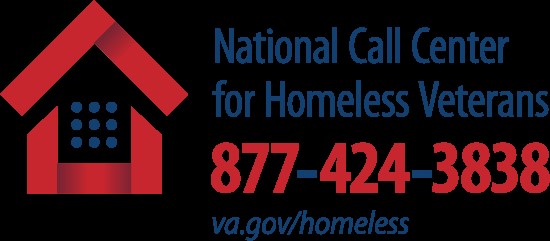Employee Spotlight
April 15, 2022
Matthew Stimmel, PhD

National Training Director, Veterans Justice Programs
VHA Homeless Programs Office
Q: How long have you worked for VA?
A: I’ve worked for VA since 2013 when I came to the VA Palo Alto Health Care System as a Post-Doctoral Fellow in their post-traumatic stress disorder (PTSD) emphasis area. From 2014 to 2019, I served as a Veterans Justice Outreach Specialist. Then, in June 2019, I started my current role.
Q: What does your current job entail?
A: As National Training Director, I am officially responsible for developing and sustaining the education and training of more than 400 Veterans Justice Program (VJP) field staff. But I really see my role as providing whatever support I can to VJP specialists who are doing such terrific work in a challenging job every day. As a member of the National VJP program office, I also contribute to national VA policy on justice-involved Veterans and help cultivate operational internal and external partnerships that advance VJP’s mission of ensuring access and care to justice-involved Veterans while reducing their risk of recidivism and homelessness.
In addition to my normal job duties, I also co-lead our Racial Equity and Racial Justice Workgroup, where we’re striving to ensure equitable access and outcomes for all the Veterans we serve. I also help with other HPO initiatives, including creating a leadership development curriculum for VA homeless program leaders and supporting the development of innovative practices across homeless programs. Lastly, I occasionally help with other training and education – for example, I create content on the risks of overdose and suicide for justice-involved Veterans with both research and operational partners.
Critical to this is work is reducing stigmatization and increasing empowerment among Veterans who are justice-involved and who may face other stigmatization as a result of their intersectional identities. This is something that our office is very passionate about and dedicated to changing.
Q: What does it mean for a Veteran to be “justice-involved”?
A: We take a broad understanding of the concept of “justice involvement”. It refers to any kind of contact with the criminal justice system, whether it’s initial contact with law enforcement, arrests and jail, early court processes, incarceration at correctional facilities, reentering the community if on parole, or other post-release supervision.
Circling back to the impact of stigma, we’re mindful that the term “justice-involved” itself may inadvertently lead to more stigmatization of the Veterans we serve, as a lot of people have preconceived notions on what “justice involvement” may look like, as well as bias about what it says about a person. As a label, it may also misrepresent the experiences the Veterans themselves have, as they may not feel the system itself is just. In research, we’re seeing some shift towards “legal involvement” and it may be better to use broader terms like these.
Q: What kind of services does VA provide to justice-involved Veterans?
A: We provide a full range of services, both directly and indirectly. Direct services include outreach by licensed clinicians and peer support specialists to county jails, state and federal prisons, and treatment and other diversionary courts. Some of our field staff provide treatment at VA medical centers and community-based outpatient clinics in the form of Moral Reconation Therapy and Strength at Home groups. Our focus is to facilitate access to care and help connect justice-involved Veterans with the services they want and need to build back their lives.
Indirect services include training for community partners such as probation officers, law enforcement partners, crisis intervention teams, and other community partners, with an eye towards promoting early intervention and deflection. It is absolutely vital to prevent justice-involvement, as it can help prevent homelessness and increase access to needed health care and other psychosocial support.
Q: Why is it important to provide services to justice-involved Veterans?
A: Justice-involved Veterans are Veterans. Like all Veterans, they deserve access to the care they earned while serving our country. Furthermore, there are times when the reasons they became justice-involved in the first place can be linked back to their time in service. We believe that it is important that these Veterans get support rather than being punished, and it is consistent with VA’s overall mission to honor our country’s commitment to Veterans.
Although most justice involved Veterans are eligible for health care, those who have been discharged under Other-Than-Honorable (OTH) conditions are over-represented. Historically, this has limited their access to the full range of Veterans Health Administration services and other benefits. We’re trying very hard to educate these Veterans, our community, and correctional partners on the expansion of benefits VA is rolling out to Veterans with OTH discharges. Given that they’ve been historically excluded from care, these Veterans need additional support and coordination with community partners to ensure they can smoothly reenter the community.
Q: How does stigma factor into all this?
A: Justice-involved Veterans face stigmatization in so many ways, which may include lack of trust, perceptions of being dangerous and reoffending, or accessing services only to avoid being arrested and incarcerated. This can lead to significant barriers, such as limits on access to employment and housing as well as feeling stigmatized by their healthcare providers. Not only that, but these continued experiences can lead to embarrassment and shame, as can repeatedly having to acknowledge their past as they try to access resources. All of these things can discourage them from getting the help they want and need.
Stigmatization cuts across the multiple identities Veterans have, and there’s an important race equity issue here, too. We know Black and Latinx people are overrepresented in the legal system, and Black and American Indian / Alaska Native (AIAN) people are overrepresented in the homeless population. This overrepresentation holds true for Black and AIAN Veterans in particular and, to a lesser but still present extent, Latinx Veterans who are incarcerated as well.
This is why VJP operates from the lens of service rather than punishment – from the lens of facilitating access to care instead of reinforcing barriers. And it is why it is important for VA to help educate both internal providers and community partners about the harmful impacts of stigmatization and the importance of connecting these Veterans to help.
Q: What is your why for this work given that you’ve done this for years?
A: My interest in working in this space came from 3 parallel processes.
First, my father was a Navy Veteran, a physician and a medical educator. I was inspired by his own call to service.
Second, I had a family member who was justice-involved. Visiting him in prison opened my eyes to the world of criminal justice and sparked a desire to help others who were justice-involved, too – especially those with less resources than my family member had access to.
Third, when I was in graduate school in 2007, my clinical placement was at Rikers Island Jail in New York City. That experience further opened my eyes to the widespread trauma that justice-involved people experience. I was struck by the stark and upsetting realities of Black and Latinx people in the system and the lack of services available to them. This experience also coincided with society’s broader awareness of the devastating toll of the wars in Iraq and Afghanistan, which reinforced my interest in clinical and research work focused on trauma.
When applying for post-docs, I was lucky to find an opportunity with VA that connected my desire to help those who served as well as those who were justice-involved. I feel so lucky to be a part of the VJP program office and serve alongside our incredible VJP specialists. I’m honored to be able to help Veterans get back on their feet in whatever ways I can.

















